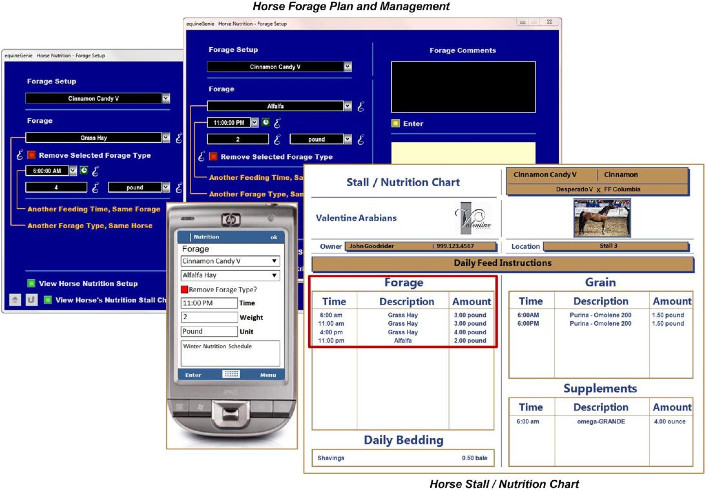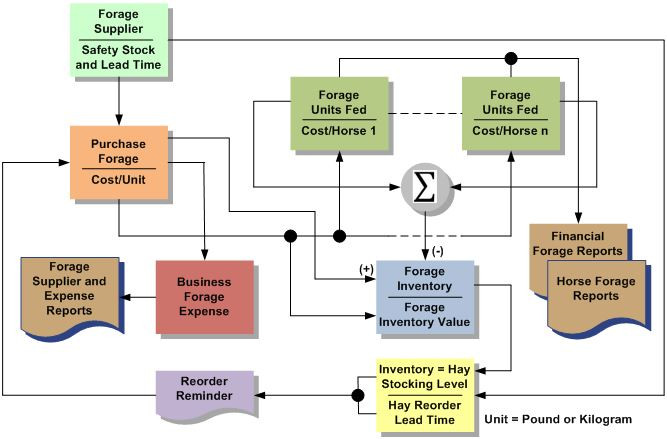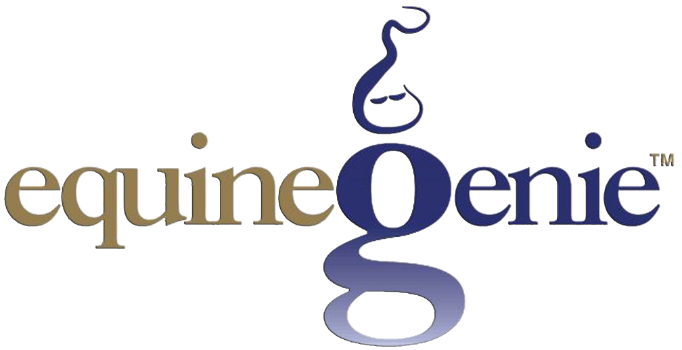Using a Horse Business Management System to Manage Your Forage
June 17, 2013 | By: Bob
Often, it is the feeding methodology, not the feed composition, which leads to digestive disorders in horses. Tracking and managing your horse’s nutrition should be taken very serious because digestive problems can result in a horse’s premature death. Far too often, you hear someone say they feed their horse a couple of flakes of hay two times a day and a coffee can of grain. Under some circumstances that might be adequate, but the probability of a digestive problem is far greater than if a horse’s nutrition is defined, measured and scheduled using a well thought out nutrition plan and a management system to help you implement and manage the plan. The plan should be based on a horse’s weight and body score, its use and discipline, where it is in its life cycle, the nutrition value of its feed and how it is stabled and cared for. It is well worth the time you will invest. You only have to do it once and then tweak it a few times to get it right. An investment in a good horse business management system and less than $75 in a good scale can help prevent a $5,000+ colic surgery.
A horse’s nutrition is so important to its health and performance it should be considered part of a horse’s preventative care protocol. A good management system will provide the information you need and assist you in setting up, managing, tracking and communicating your horses’ daily nutrition and feeding schedule.

The following example is how a horse management system can assist you in managing the forage portion of your nutrition plan. The management system should save your valuable time and money by:
• Managing a horse’s daily consumption by amount and feeding schedule.
• Automatically calculating the total daily consumption for all horses, and then subtracting the total from your forage on hand.
• Managing your forage’s shelf life making sure its nutritional value is maintained.
• Reminding you when to purchase more forage, making sure you always have enough, but never too much.
• Automatically resetting your purchase reminder when new purchases are made.
• Automatically readjusting your purchase reminder for shortages or overages when an inventory is taken.
• Managing your cash flow to minimize your use of cash and prevent unnecessary expense on forage you don’t need that could lose its nutritional value.
• Providing intelligent reports that analyze and communicate your forage information.
Forage reports should include:
• Total expense by month and year, and the percent of your total business expense.
• Daily, monthly and annual forage expense per horse, by forage type.
• Monthly and annual forage expense by supplier.
• Monthly and annual forage expense by forage type.
• Daily feeding amounts and feeding times that can be posted for everyone to see.

A good horse management system will manage your grain and supplements just like it manages and reports you forage requirements. You cannot maximize your horse business success without a good horse business management system that assists you in all aspects of managing your horse business.
Sign up for a free one year subscription to our newsletter at info@genieatwork.com and receive a ‘Genie At Work’ mouse pad. Just write ‘Sign me up for your Newsletter’ in the subject section and enter your name and address in the content section.
Happy Trails, Good Management and Business Discipline Always!
Bob Valentine, Ph.D.
President
GenieCo, Inc.
Box 271924
Ft. Collins, CO 80527
970.682.2645 or 970.231.1455
bob@genieatwork.com

1 Comments
Jan 11, 2018, 2:39:33 PM
Kim Wright - Sign me up for your newsletter